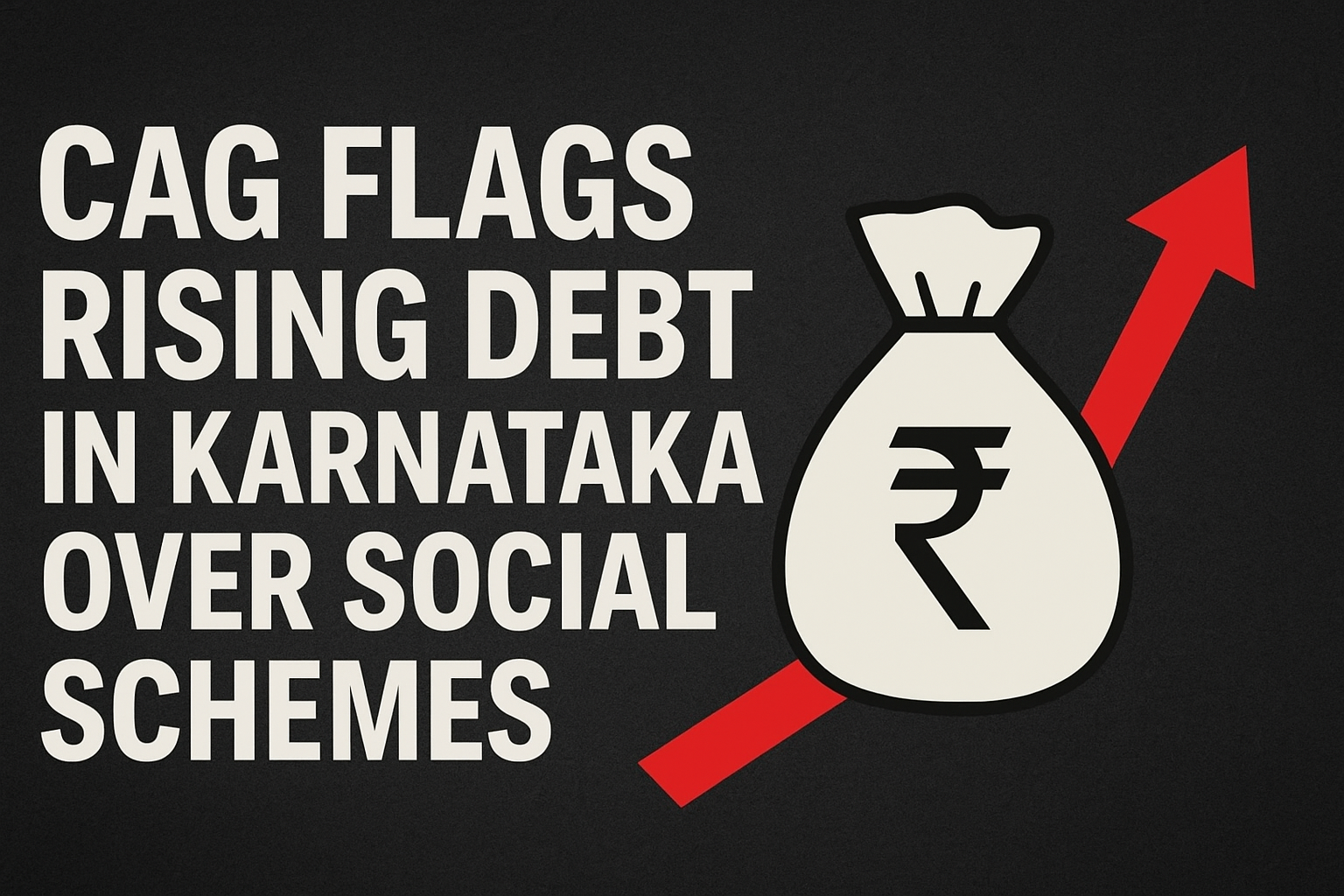
The Comptroller and Auditor General of India (CAG) has expressed concern over Karnataka’s financial health. In its audit report tabled in the Legislative Assembly this week, the CAG highlighted the growing burden of the state’s welfare programmes. According to the findings, the implementation of the five guarantee schemes announced by the Congress-led government has led to a significant rise in expenditure, which has in turn affected borrowing and investments in infrastructure.
The report stated that these social schemes accounted for almost 15 percent of the state’s total revenue expenditure during the financial year 2023–24. This increased the financial stress on the government, forcing it to rely heavily on borrowings to meet its commitments. While the schemes were allocated ₹36,537.96 crore for the year, nearly the entire amount was utilised. This sharp rise in expenditure reduced the availability of funds for long-term infrastructure projects.
The CAG also pointed out that the state’s overall spending grew by 12.54 percent compared to the previous year. However, this was not matched by revenue growth, which stood at only 1.86 percent. The mismatch between expenditure and revenue growth pushed Karnataka back into a revenue deficit of ₹9,271 crore in 2023–24. To manage this shortfall, the state government had to depend on net market borrowings, which increased to ₹63,000 crore during the year. This was ₹37,000 crore higher than the borrowings made in the previous year.
According to the audit, such a steep increase in debt would place a “massive repayment burden” on the state in the near future. The report warned that this would aggravate the financial strain on the government and could limit its ability to invest in development projects. If borrowings continue to rise at the present rate, the state could face serious challenges in meeting its financial obligations in the coming years.
The political implications of the report have been immediate. The opposition parties have used the CAG’s assessment to criticise the ruling Congress government. Leader of Opposition R. Ashoka said that the findings confirmed Karnataka’s financial decline under Chief Minister Siddaramaiah. He argued that the government’s emphasis on populist guarantees had come at the cost of fiscal discipline and long-term economic stability. According to him, the state should focus on strengthening its revenue base rather than depending excessively on debt.
On the other hand, the government has defended its welfare programmes, pointing out that they were designed to provide relief to vulnerable sections of society. The five guarantee schemes were a key part of the Congress manifesto during the 2023 Assembly elections, and they were implemented soon after the party came to power. Officials argue that these measures have offered support to poor households and have helped them cope with rising costs of living. However, the financial data in the CAG’s report has raised questions about the sustainability of these policies.
The debate that has followed the release of the audit reflects a larger tension between welfare spending and fiscal responsibility. While welfare schemes are important for addressing inequality and poverty, they must be balanced with the need for sound financial management. If expenditure consistently exceeds revenue, states are forced into a cycle of borrowing, which creates heavy repayment burdens in future years. Such a situation not only affects the government’s ability to fund infrastructure projects but also limits its capacity to respond to new challenges and emergencies.
The case of Karnataka shows how quickly financial pressures can build up when large-scale welfare programmes are rolled out without a matching rise in revenue. The state’s revenue growth of less than 2 percent in 2023–24 was far too small to sustain the spending increase of over 12 percent. This imbalance has already resulted in a substantial deficit and a sharp jump in borrowings. If corrective steps are not taken, the repayment pressure is likely to mount in the years ahead, as the CAG has warned.
The report is also significant because it comes at a time when many states are expanding welfare spending. The Karnataka experience may serve as a reminder that fiscal prudence and welfare policies must go hand in hand. Investments in infrastructure, education, and health are crucial for long-term growth and cannot be neglected for short-term relief measures. A balanced approach will be essential if the state is to maintain both social welfare and financial stability.





















